I had never met Brian Tracy before… but we were attending the same event… so I got up the courage to ask him to come to my suite and share some tips with us from his many years of experience – and he said YES! From start to finish, it’s filled with Pearls Of Wisdom! You can read highlights from my interview with Brian below (or, if you prefer to WATCH the interview, click the link at the bottom of this article.)
[The Interview]
Sabrina: I am super-duper, over-the-moon excited to bring to you today, the legendary, Brian Tracy. We are in a Mastermind together and I pulled him out because he is just the top of business speakers and coaches. He has been entrepreneurs, small businesses with his message, and his skills and his ability to help us, not only know where we want to go, but actually GET there, for over 35 years. So I am humbled that we’re here together and so humbled that you agreed to come and share these few moments with me.
Brian: Thank you, Sabrina. This is a subject that I believe very strongly in… the importance of people starting and building their own businesses.
Sabrina: Can you tell our friends, and our community: What would you tell someone who was just starting out? Just thinking, “I think I want to do this. It MIGHT be possible.“
Brian: Well, my two sons have started their own businesses as well, and what happens is — you reach a point in life where you say, “I can do it, as well or better, than anyone else. These people are not smarter or better than me.” And then you just take the leap.
I’ve found in life that all success comes from taking the first step. And many people say, “Well, I don’t know HOW to start a business.” In fact, 68% of adults want to start a business some day and the major reason they don’t is because they don’t know how.
So what you do is: You start finding out HOW.
And fortunately all the research has been done. My friend, Og Mandino, said to me, “There are no secrets of success. There are simply proven principles that have been practiced over and over again.”
And I was listening to an interview with Richard Branson, who has started 84 businesses – 82 of which are still functioning. And he was asked, “How could you start business after business, in different categories, in different fields, and so on… how could you do this?” And he said he started off as a 16 year old dyslexic, so he wasn’t really capable of doing the writing and thinking himself — but he had good ideas. So he found people who could do the things that he couldn’t do.
Which is by the way the great secret of success in business…
And then he said, “Once you figure out how to start and build the first business, the rules are pretty much the same for every subsequent business.” And that’s why he has been able to start businesses in records and publications and airlines and balloons and everything you can imagine… he’s one of the richest people in the world.
And he’s just a genial, nice guy who thinks “Can’t do it myself, so I come up with a good idea and I find someone to help me.”
So, that’s one strategy you can use.
Sabrina: That’s great. And I know that, for myself years ago when I was first starting, it’s like, where do I find people to help me? What do I do? What’s the action step that I can take in a series of step, by step, by step… like the first three steps to get started. So, “I have an idea but, I don’t know what to do. I don’t know how to get started.“
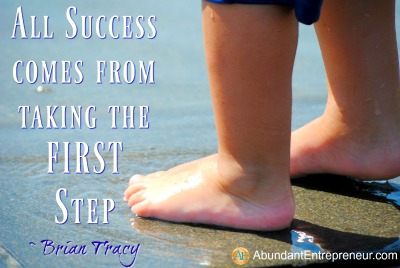
Brian: Well one of the things we learn in this entrepreneurial network is that everything begins with an idea.
And the idea is to help people accomplish something that they couldn’t accomplish without your product or service.
All the research says that there are basically three things:
- The product must matter to people; it can’t be irrelevant
- You must be better at producing your version of it than anybody else is, and
- You must test and test and test.
We call this proof of concept.
You may have a great idea but that doesn’t mean it’s a great idea. You have to go and talk to people and ask them for feedback. The greatest advance I think in business today – especially in this network – is what we call the “Four Stages Of The Epiphany.” Which is where you co-create products with customers.
- You come up with a good idea and you say, “What is the key benefit that this offers a customer that would cause them to buy it rather than to buy nothing or to buy somebody else’s?”
- Then you go to what you would consider to be a typical customer and you say, “What do you think?“
- And customers are very straight-forward. They’ll say, “I like this.” or “I like that. But I don’t like this and I don’t like that.” And you say, “Great.“
- Then go back to the drawing board to work on it and bring it back again. Until your prototype customer says, “I really like this. If you produce it, I’ll buy it. “
That’s your first proof of concept… is that somebody wants it, and likes it and will buy it at the price that you say you can sell it at and still make a profit.
And this sounds very simple but then you sit down and you work out your numbers:
- And you work out, “How much will it cost me, in all, to produce and market this product?”
- And then, “How much would I have to charge in order to make a profit from marketing this product?“
I was just listening to statistics from what we call, “Value Proposition Design,” and 80% of products (thoroughly-tested) failed in the first year. Only 20% succeed. And of those, only 20% are “blockbusters.”
And the reason the 80% fail is that they didn’t do enough homework. Forbes magazine had a study last year and they said that the primary reason for business failure and for product failure, is that customers simply don’t want the product.
The entrepreneur thinks it’s a great product, but that’s only the starting point.
One more thing by the way, they interviewed 500 founders of the 500 fastest growing small to medium size companies in America last year and they found the most interesting thing… they all had the same answer.
The question was, “Why did you start the company?” And the answer was, “Because I loved the product so much I wanted it for myself and my family.”
And I say that because an awful lot of people have this funny idea that they may not like or use the product, or want to sell it to their friends and family… but other people will. And that is the surest and fastest road to failure.
Sabrina: Yeah. I think that’s genius because what I’m enthusiastic about and what I love… I tell my friends about it and then they do it and they try it. But it seems so close to us, that I don’t think we value the genius in it. That we are all an expert at something. We are a all genius at something… that we take for granted because it comes so natural to us. But if you could provide that information and that gift, that tool, that tactic and strategy… to someone that it doesn’t come natural to… you’ve just given them the biggest gift.
Brian: Yes. And selling of course is important, but the thing is if you really believe in your product, you just talk about it.
People say, “Well, I don’t like selling.”
But if you go to a good movie, do you like to talk about the movie? What a great movie it was?
It’s the same thing with a good product.
You’re not selling people to go to the movie… you’re just telling them what you really like about it.
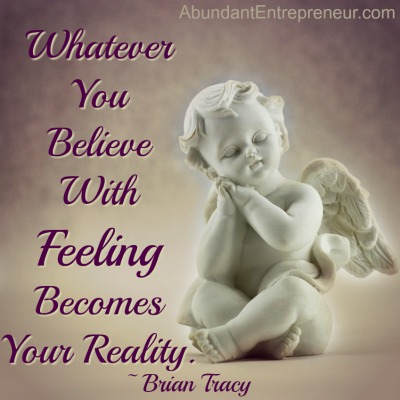
One of my favorite observations is from Albert Einstein when he was asked, “What is the purpose of human life?” And he stopped and paused and thought… and then said, “Well, we must be here to serve others. What other purpose could there be?”
And the rule is if you want to dine with the classes, you have to serve the masses. If you want to be successful, if you want to make a lot of money… then you have to produce a product or a service that really benefits and enriches or improves the lives of other people.
And so you look at something that really improves your life. And you really like it and get excited about it. And you just tell other people about it in every conceivable way.
Sabrina: That’s “meaningful money.” When the money that you earn comes from a place of meaning.
Brian: Yes.
Sabrina: I love that I can feel your heart and your passion for truly helping and uplifting the planet through what you do.
Brian: Yes. Well, it’s important. There’s never been a better time to start a business than today… especially an online business.
When I started in business, 30-35 years ago, to set up a business you had to have an office, you had to have staff, you had to have photo-copiers and desks and furniture and IBM typewriters. It’d cost you 10, 20, 50 thousand dollars to start a business.
Today it’ll cost you $50 to $100 dollars.
You can go on LegalZoom, you can register a business, you can protect a copyright worldwide (or the trademark) and you can begin buying or selling or offering products – tangible or intangible – within 24 hours.
It’s the most amazing thing in the world. And if your business doesn’t work out, you just shut down and the next week you start another business.
There’s a “Law of Probabilities“, which I learned many years ago, which says the more businesses that you attempt, the more ideas that you look at – the greater is the probability that you’ll come up with the right one at the right time.
Sabrina: Mm-hmmm… and that statistic you gave earlier, where 80% fail… they may have quit after that first one. They didn’t hit the delete button and say, “Let me try again. Let me get up again.”
Brian: And another thing to do is get advice from others who have been there before. I’ve worked with so many people. I speak to about 250,000 people a year. I’ve spoken in 75 countries. And my favorite programs right now, are the one or two day MBA, which is a crash course in practical business. The other is the one or two day Business Model Re-engineering Program – where I show people how to re-invent their existing business by looking at every single part of the business to find out what’s causing the business not to work. And then I do programs and sales and so on.
But the main thing is that when it’s not working, you just step back and you say, “Why isn’t it working?”
I say this, if you’re driving down the street in your car and the car starts going, KA-BUNKH, KA-BUNKH, KA-BUNKH, KA-BUNKH. Well, that’s a sign that there may be something wrong with your car and you should get it checked out by a mechanic.
So, if you start a business and your sales are not going up steadily, and your profitability isn’t increasing… that’s the same as KA-BUNKH, KA-BUNKH, KA-BUNKH in a car. And then what you do… you don’t stop by the side of the road and try to fix the car by yourself.
You get advice from other people – you search… and today you can get more advice, from more people, in more ways faster and easier with a mouse-click than has ever been possible in human history.
Sabrina: Yes, it’s a really exciting time to help people have this extra revenue stream – not even necessarily leave the job they’re at. That really excites me… that for some people just that extra time freedom that you can create from the financial abundance. And the difference in can make in their lives.
Brian: The number one reason entrepreneurs want to start a business is for freedom. We say they want the freedom to work their own hours and the joke is that when you start a business you only have to work half days – and you can pick whichever 12 hour period you like – 7 days a week – until the business gets going.
Sabrina: [laughing] Yeah.
Brian: But the time to do it is always now. There’s never a right time. There’s never a better time.
Some of the biggest and most successful businesses (Apple, Microsoft and others) were started in the troughs of great recessions. And everybody was jumping out of windows. And that’s when they came up with the idea – and they thought this was a great idea – and they just plunged into it.
And you can do the same thing.
Sabrina: Thank you so much for coming and sharing your wisdom with us. I can’t believe that you’re here in my suite and are willing to spend this time.
Brian: Well, it’s a pleasure. I’ll just leave you with one thought… I’ve been speaking on success for 35 years. I’ve produced something like 300 or 400 audio and video programs and written 75 books… And it always comes down to one thing:
Set clear goals and then take the first step. ACT. Take action. Move out.
And the most wonderful thing when you take action, is three things happen:
- First of all, you get immediate feedback which gives you direction to course-correct… cause nothing will ever work out the first time.
- Second of all is you’ll get more ideas on how to be more successful. You don’t get the ideas sitting on the couch. You only get the ideas actually out there trying things.
- The third thing is when you take action your self-confidence goes up. And your self-esteem goes up. And you feel happier and in more control of your life.
So you get all three benefits from taking action on your idea and you get NOTHING from sitting there.
Sabrina: YES! So maybe the action you want to take is to review this interview and take some notes– because there were so many jewels pouring out on you today. And also, share it with your friends and family.
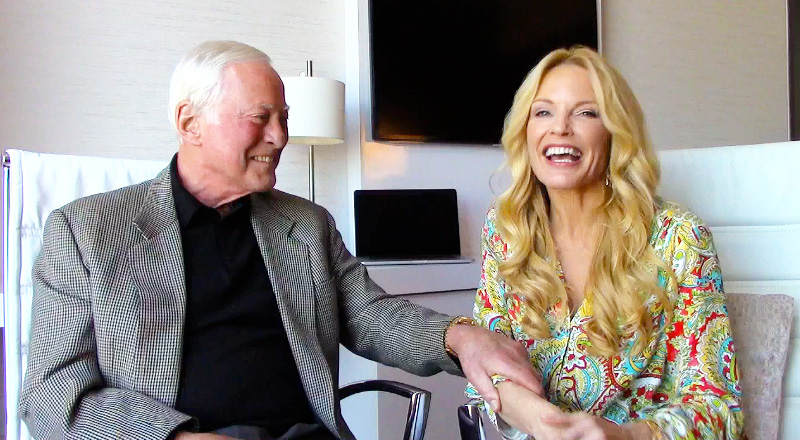
[Taking A Moment To Reflect]
Wow! So many gems!
Or more like seeds. That can spawn a mighty forest.
Even just the last thing that Brian says. About taking action NOW and the three things that happen…
You get immediately feedback on what you can change, more ideas on how to be successful, and more self-confidence as you move forward. And all of this DIRECTLY from the people that think what you have to offer might help them.
But the whole point is that none of that happens if you just sit there and do nothing. So ACT. And do it NOW.
So, even if you’re not sure you have exactly the right idea, or it’s exactly the right time. Try something. Act now.
Yoda said, “Do or Do Not. There is no try.” But his point was to have conviction.
I think my take-away from today is:
Try Something Now. With Conviction. And Then Try Something Else.
Do you agree with Brian? How about when he says that it’s never been easier or faster to get advice from others in all of human history?
I remember when I planted a few trees in my yard. I asked, “When is the best time to plant a tree?” And the guy at the nursery said, “20 years ago.” Do you get that? Do you see how it also applies to taking action NOW instead of waiting?
Want to WATCH the interview instead of reading? Click Here.
About Brian Tracy
Brian Tracy is one of the world’s top professional speakers and the Chairman and CEO of Brian Tracy International. He is also the author of over 70 books on self-development, time management and leadership. His most popular books include Earn What You’re Really Worth, Eat That Frog!, and The Psychology of Achievement. As a friend of Abundant Entrepreneur, he would like to give you with a copy of his ebook, “The Power of Habit: 7 Steps to Successful Habits.”
Want more free tips on how to create a wealth consciousness and an abundant work-from-anywhere online business? Subscribe here for free updates!

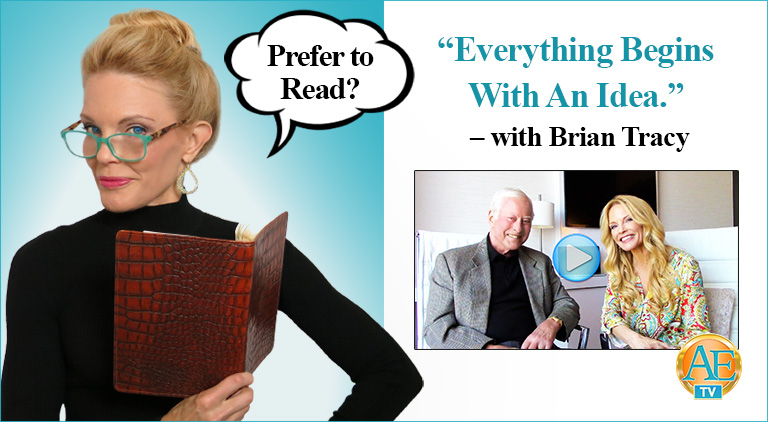
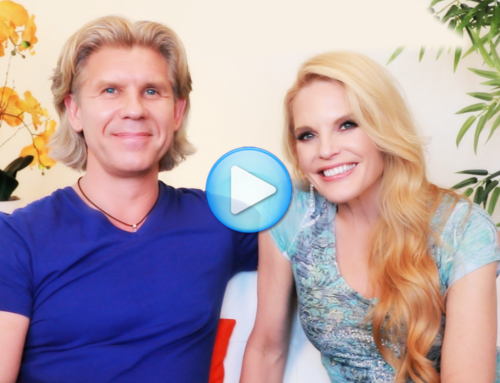
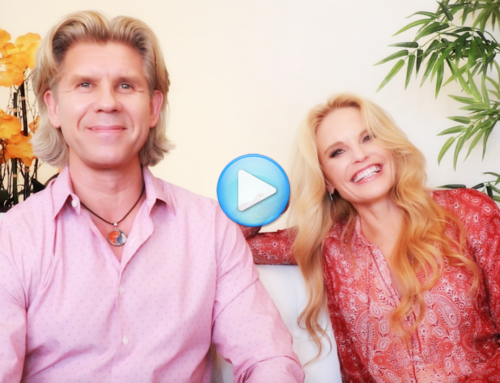
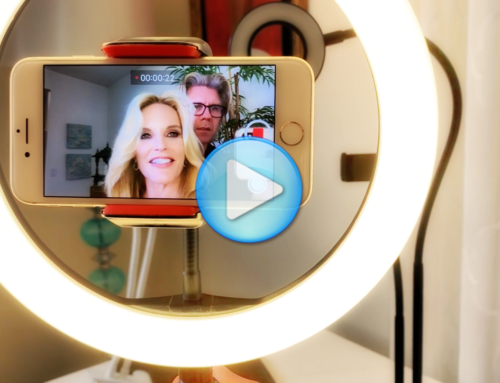

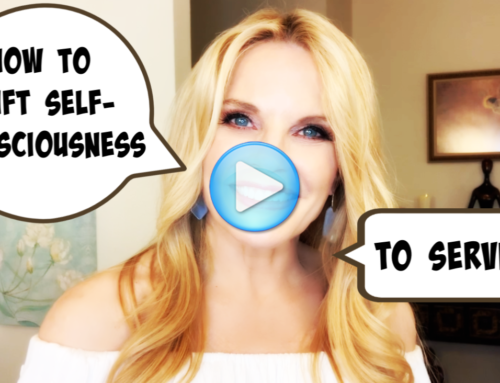

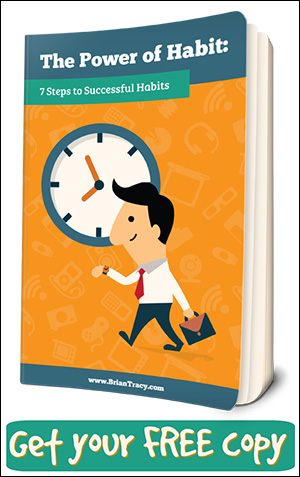






Leave A Comment